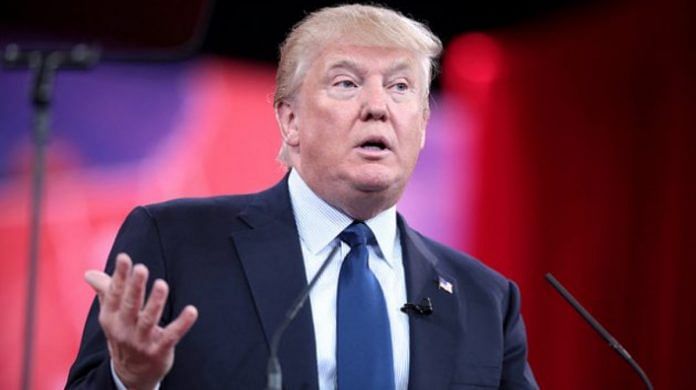Jerry, just remember: It’s not a lie if you believe it.” — George Costanza, “Seinfeld”
Did Donald Trump believe he was telling the truth when he claimed that the 2020 election, which he lost, was rigged against him? I think not, but I’m just one person.
Fortunately, lots of other White House advisers, such as former Attorney General William Barr, told Trump in the days and weeks after the election that there was no fraud. Barr called the claims “bullshit,” “rubbish” and “idiotic.” Trump’s advisers were surprised, sometime stunned, that he plowed ahead anyway. Those were just some of the revelations from the second day of testimony of the select congressional committee investigating the Jan. 6 attack on the US Capitol.
One reason this matters is that the hearing’s most important audience isn’t voters or historians. It’s an audience of one: Attorney General Merrick Garland. If Garland’s Justice Department decides to charge Trump with electoral fraud, it will need to demonstrate to a jury that Trump intended to commit a crime when he staged an attempted coup — and that he knew what he was doing was wrong. The Jan. 6 committee is laying lots of persuasive evidence on Garland’s desk.
In addition to Barr, other White House and campaign advisers, including Jared Kushner, Bill Stepien, Eric Herschmann, Alex Cannon and Jeffrey Rosen, told Trump that there was no election fraud. Some advisers did insist otherwise, including Rudy Giuliani. But based on testimony at the hearing, the Giuliani crowd was telling Trump what he already wanted to hear. Barr testified that Trump had no interest in the “actual facts.” Stepien testified that Trump’s “mind was made up” that mail-in voting was a scam months before the election took place.
Barr went as far as to say that if Trump really did believe there was fraud, he had “become detached from reality.” But Trump’s never been detached from reality — he has simply created the narratives he wants to get what he wants. He’s been doing that for decades. You can call this modus operandi lying, or exaggerating, or prevaricating, or dissembling, or falsely speaking. Whatever the term, he knows exactly what he’s doing when he does it.
Trump spent years spinning tall tales of New Yorkers who were plotting against him to defeat his real estate projects. When his Atlantic City casinos flatlined, he blamed the city for the failure rather than himself. He routinely claimed his wealth was a multiple of what it actually was — and he had to know that his projections were false. (He sued me on that point, and lost.)
When Trump was deposed under oath in my case, my lawyers showed that he had lied dozens of times over the years about all sorts of stuff, including the scope and profitability of his business operation, how much debt he held, whether he staved off personal bankruptcy by borrowing money from his family and about his business dealings with career criminals.
Trump has been embracing alternative facts for a long time, always in the service of self-aggrandizement or self-preservation. But the stakes are higher now. This time, he and his minions tried to torch the Constitution and disenfranchise voters.
And staying in power wasn’t Trump’s only goal in propagating the big lie. It was also making him money. His campaign has hauled in about $250 million from donors who believed he was using the money to combat election fraud, according to the Jan. 6 committee.
Trump and his teammates knew exactly what they were doing, and the Jan. 6 committee keeps bringing the receipts. Congress shouldn’t be the only forum where all of this is hashed out and assessed, however. A courtroom should be the next venue.
Garland will be held to a high standard if he brings a criminal case against Trump. “Mens rea” is the legal term for criminal intent, and it is enshrined in the law to protect defendants who unknowingly or accidentally committed a crime. If they didn’t know what they were doing was wrong, the argument goes, the punishment should be less severe. Perhaps they shouldn’t even be prosecuted.
Trump didn’t accidentally or unknowingly propagate the big lie or foment a coup. He knew exactly what he was doing, and he told the world about it in speeches, interviews and on his Twitter feed. When people close to him told him his actions were groundless, he did it anyway. And he continues to do it.
But don’t take my word for it. Garland and the Justice Department should make sure that a jury of Trump’s peers gets the opportunity to decide if he’s guilty.- Bloomberg
Also read: Trump spurned pleas to end lies, call off mob, Capitol attack panel says



